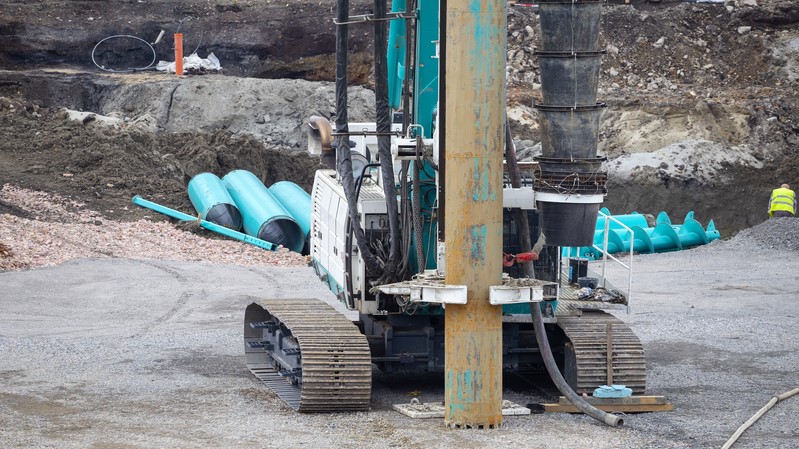
The Construction Leadership Council (CLC) has called on the government to review the occupations eligible for a UK visa and an immediate update of the shortage occupations list, amid a shortage of piling rig operators, HGV drivers, and other roles.
The CLC joined the Road Haulage Association (RHA) and the CBI in its appeal for a review.
It warned that construction was feeling the effects of a new points-based immigration system, with more than just core construction skills affected.
It said the availability of HGV drivers was a “growing cause for concern” and was now delaying deliveries and inflating costs across the UK.
Parliament’s Transport committee recently heard that the industry faces “a huge challenge of shortages, both in craft and particular skills”. The CLC said this shortage would have a greater impact as more major infrastructure programmes get under way.
The CLC said employers of all sizes are now reporting challenges in employing suitably skilled workers. It called for the new visa system to accommodate specialist construction workers to help alleviate the shortage in the short term while training of UK workers catches up.
According to the RHA, the UK has lost 15,000 European drivers this year due to Brexit, and 30,000 UK driver tests due to covid, exacerbating the existing 60,000 driver shortage. The construction industry is one of the largest users of the UK road network.
Construction Leadership Council co-chair Andy Mitchell said: “We now have a situation where we believe the government needs to intervene. Manufacturers, merchants and builders large and small are having products and materials delayed or not delivered, and warn that it is having a knock-on effect on construction schedules and leading to higher build costs. Industry can only take this so far, and as government is also the largest client of construction services, we trust it will listen to the calls from all sectors to enable timely and appropriate reviews of the new immigration system.”
Suzannah Nichol, CEO of Build UK, said: “We do not have all of the specialist skills we need for the volume of construction projects underway and those in the pipeline across the UK. The new immigration system is proving difficult to navigate, is costly and actually prevents many of the people with the skills that construction needs from coming here to work. By reviewing the eligible skilled occupations and the shortage occupation list, we can ease the current pressures, support businesses to grow the economy and keep building faster, better and greener.”
Comments
Comments are closed.











European HGV Drivers, residing in the UK, were not affected by Brexit – no need for special treatment of additional European Drivers.
The shortage of UK HGV Driver is homegrown (low wages, poor conditions), although easily rectified.
HGV Drivers can be trained to UK Driving Standards in a relatively short period of time – this is the course of action that should be followed.
Longer term; provide HGV Drivers with a salary commensurate with the skill required to drive large, heavy vehicles on the congested roads of today – that way more people will view the profession as attractive.
The above item is tragic , the major Banks and Construction drove out all the highly skilled experienced tradesmen in this Country, Stopped Apprentices ,then flooded the country with cheaper labor do drive the cost,s down Now your crying about labor shortages. You money men managing Q/S and main Contractors have caused the current crisis. The other major secret pact between the major Contractors was the unofficial agreement NOT TO EMPLOY ANYONE OVER THE AGE OFF 60. Now you are crying , Many great tradesmen have left because of the Money men.
If there is a shortage of skilled operatives then it’s down to employers paying cheap and not training. Bleating to government to go back to an “EU style open door policy” is not the answer. Set aside profits for training. Pre EU it’s what used to be done.